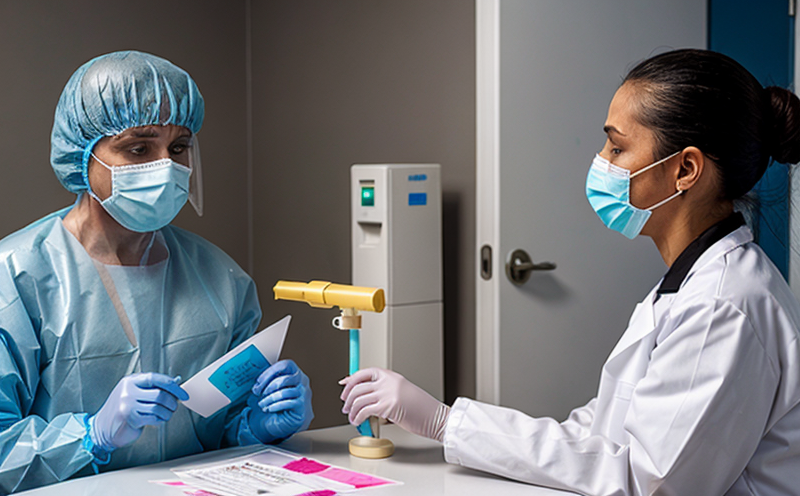Norovirus Detection Testing in Shellfish
In recent years, noroviruses have emerged as a significant global health concern. These viruses are the leading cause of acute gastroenteritis outbreaks worldwide and can contaminate various food products, including shellfish. The presence of noroviruses in shellfish poses a particular risk to public health because these foods are often consumed raw or minimally processed. Therefore, ensuring the safety of shellfish is critical for maintaining public health standards.
The demand for accurate and reliable detection methods has led to advancements in diagnostic technologies focused on identifying noroviruses in shellfish. This service provides comprehensive testing solutions tailored specifically to detect norovirus RNA in bivalve molluscs such as clams, mussels, oysters, and scallops.
Our laboratory utilizes cutting-edge molecular techniques like reverse transcription polymerase chain reaction (RT-PCR) to identify norovirus sequences within samples. This method allows for precise detection even at low concentrations. The entire process from sample collection through final result interpretation is meticulously controlled to ensure accuracy and reproducibility.
Specimen preparation involves rigorous protocols designed to preserve integrity while enhancing sensitivity during testing. Samples are collected using sterile techniques and transported under cold chain conditions to prevent degradation of viral particles before analysis. Once received at our facility, each sample undergoes stringent quality checks ensuring compliance with international standards such as ISO 17025.
Our team employs advanced instrumentation including real-time PCR machines which enable rapid turnaround times without compromising on precision or reliability. Data generated from these analyses are analyzed meticulously and reported back to clients along with detailed documentation specifying all relevant parameters used throughout the testing procedure.
The importance of this service extends beyond mere compliance; it plays a crucial role in safeguarding consumer health by preventing potentially harmful products from entering markets where they could cause widespread illness. By offering reliable norovirus detection services, we contribute significantly towards maintaining public confidence and trust in food safety systems globally.
Applied Standards
The testing procedures employed by our laboratory adhere strictly to recognized international standards including ISO 17025 for proficiency testing, ensuring that all results are accurate, consistent, and repeatable. Additionally, we comply with relevant guidelines set forth by organizations such as the World Health Organization (WHO), Food and Agriculture Organization of the United Nations (FAO), and Centers for Disease Control and Prevention (CDC).
Our commitment to adhering strictly to these standards ensures that our clients receive reliable data which can be confidently used in regulatory submissions or internal quality control processes. Compliance with these guidelines also helps maintain high ethical standards within our organization, promoting transparency and accountability.
Industry Applications
| Application Area | Description |
|---|---|
| Food Safety Assurance Programs | Detecting norovirus in shellfish helps ensure compliance with food safety regulations and maintains consumer confidence. |
| Retailer Quality Control | By identifying contaminated batches early, retailers can take corrective actions promptly to protect their brand reputation. |
| Regulatory Compliance Audits | Prompt and accurate detection of norovirus aids in meeting regulatory requirements and passing audits smoothly. |
| R&D Innovation | Our testing capabilities support innovative research aimed at developing new prevention strategies and treatments for norovirus infections. |
| Procurement Decision Support | Supplier evaluation through rigorous testing ensures only the safest shellfish enter the supply chain, enhancing overall product quality. |
| Clinical Trials and Research Studies | Precision in detecting norovirus allows for more accurate assessment of potential treatments or vaccines being developed against this virus. |
| Public Health Surveillance | Monitoring trends in norovirus outbreaks helps public health authorities implement targeted interventions effectively. |
Eurolab Advantages
Our laboratory stands out due to its expertise and comprehensive approach towards norovirus detection in shellfish. With years of experience, we have built a reputation for delivering precise results consistently across multiple locations worldwide.
- Accurate Results: Leveraging state-of-the-art equipment and experienced personnel, our lab guarantees reliable outcomes every time.
- Rapid Turnaround Times: By optimizing workflow processes, we can deliver results faster than industry averages without sacrificing quality.
- Comprehensive Reporting: Our detailed reports provide not just the presence or absence of norovirus but also insights into sample characteristics and potential sources of contamination.
- Expertise in Methodology: Our team stays updated on the latest developments in diagnostic techniques, ensuring that our methods remain at the forefront of scientific progress.





